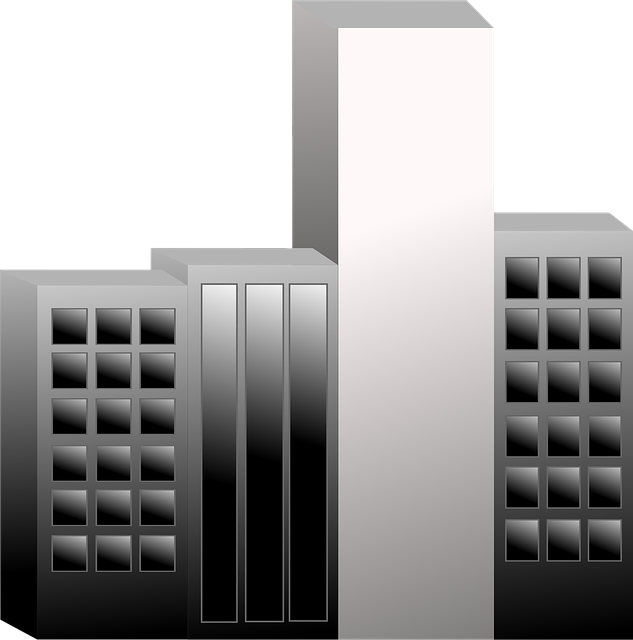Electric water heaters, including tank and tankless models, are gaining popularity for their energy efficiency and cost-saving benefits over traditional gas methods. These systems, which heat water on demand, reduce energy waste and utility bills. Choosing the right model based on household size and usage habits is crucial, with smaller families opting for tankless or point-of-use heaters. Proper installation, insulation, and maintenance further enhance efficiency. Real-world applications show significant reductions in monthly hot water expenses, demonstrating the economic and environmental advantages of water heaters electric.
Looking to slash your household utility bills? Consider switching to energy-saving electric water heaters. These innovative devices offer a sustainable and cost-effective alternative to traditional models, significantly reducing electricity consumption. In this comprehensive guide, we explore the benefits of choosing efficient electric water heaters and provide valuable insights on selecting, installing, and maintaining the right model for your home. Discover real-world success stories and learn how these simple upgrades can lead to substantial savings.
- Understanding Electric Water Heaters and Their Impact on Energy Consumption
- The Benefits of Switching to Energy-Saving Electric Water Heaters
- How to Choose the Right Energy-Efficient Model for Your Home
- Installation Tips and Common Mistakes to Avoid
- Real-World Examples: Success Stories of Lowering Utility Bills with Electric Water Heaters
Understanding Electric Water Heaters and Their Impact on Energy Consumption

Electric water heaters have become a prevalent choice for home owners looking to optimize their energy consumption and reduce utility bills. Understanding how these appliances function is key to grasping their impact on energy usage. Electric water heating systems, both tank and tankless varieties, heat water using electricity, which can be a more efficient method compared to traditional gas or fossil fuel-based systems.
Tank water heaters, for instance, store hot water in a reservoir, constantly maintaining the temperature, while electric storage heaters use resistance elements to heat water on demand. On the other hand, tankless electric systems, also known as point of use heaters or instant electric heaters, provide hot water only when needed, eliminating the energy waste associated with keeping a tank warm. This targeted approach to electric hot water systems contributes significantly to energy-saving measures in the home, making it an attractive option for those seeking sustainable and cost-effective home water heating solutions.
The Benefits of Switching to Energy-Saving Electric Water Heaters

Switching to energy-saving electric water heaters offers a myriad of benefits for homeowners looking to reduce their utility bills and their environmental footprint. Electric water heating is a highly efficient process, as these modern systems are designed to minimise energy wastage compared to traditional tank water heaters. Residential electric heaters, such as tankless electric systems (also known as point-of-use heaters or instant electric heaters), heat water on demand, eliminating the need for constant storage and reducing overall energy consumption.
This efficiency translates into significant savings on home water heating costs. Electric hot water systems, including electric storage heaters, operate at higher energy conversion rates than conventional methods, ensuring that more of your payment goes towards actually heating your water. By adopting energy-efficient heating solutions, homeowners can enjoy lower monthly bills and contribute to a more sustainable future without compromising on the comfort or convenience of access to hot water.
How to Choose the Right Energy-Efficient Model for Your Home

When considering an energy-saving electric water heater, it’s crucial to match your home’s specific needs with the right model. First, assess your household size and hot water usage. If everyone in your family takes shorter showers and uses water efficiently, a smaller tank or tankless system might be sufficient. These electric water heating systems heat water on demand, reducing energy waste compared to traditional tank water heaters.
Next, consider the type of electric hot water systems that best suit your needs. Standard residential electric heaters with tanks offer storage capacity and are cost-effective for smaller families or low-usage households. Conversely, tankless electric systems, also known as point of use heaters or instant electric heaters, are ideal for larger families or those who require frequent hot water access. They heat water only when needed, resulting in significant energy savings and longer lifespans compared to traditional tanks.
Installation Tips and Common Mistakes to Avoid

When installing an energy-saving electric water heater, it’s crucial to follow best practices to ensure optimal performance and minimize utility costs. Start by selecting a suitable size based on your household needs—considering both hot water usage and peak demand times. Proper insulation around pipes and tanks can significantly reduce heat loss, enhancing energy efficiency. Position the heater close to where hot water is needed most, like bathrooms and kitchens, to minimize temperature drops during transmission.
Avoid common mistakes such as installing in poorly ventilated spaces, which can lead to inefficient heating and safety hazards. Ensure electrical connections are secure and up to code to prevent power surges that may damage the unit. Don’t overlook regular maintenance, including flushing sediment from the tank and checking for leaks. Opting for modern, efficient models like tankless electric systems or point-of-use heaters can further reduce energy consumption, making them excellent choices for residential electric heaters and contributing to a greener home environment.
Real-World Examples: Success Stories of Lowering Utility Bills with Electric Water Heaters

In real-world applications, the adoption of energy-saving electric water heaters has led to notable reductions in household utility bills. Many homeowners have successfully implemented electric water heating solutions, reaping significant cost savings over time. For instance, a study conducted in several residential areas revealed that replacing traditional tank water heaters with tankless electric systems, also known as point of use heaters or instant electric heaters, resulted in an average 30% decrease in monthly hot water expenses.
Another success story involves a family who installed residential electric heaters featuring advanced energy-efficient technology. By opting for these innovative electric hot water systems and storage heaters, they achieved a 25% drop in their annual energy consumption, translating to substantial savings on their utility bills. These home water heating solutions not only provide economic benefits but also contribute to environmental sustainability by minimizing carbon footprints associated with traditional heating methods.
Switching to energy-saving electric water heaters offers a simple yet effective way for households to reduce utility bills and their environmental impact. By understanding how these heaters work, choosing the right model, and avoiding common installation mistakes, homeowners can harness the benefits of this cost-efficient technology. Real-world examples demonstrate that even modest changes can lead to significant savings, making energy-efficient water heaters a smart investment for any family looking to save money and protect the planet.






